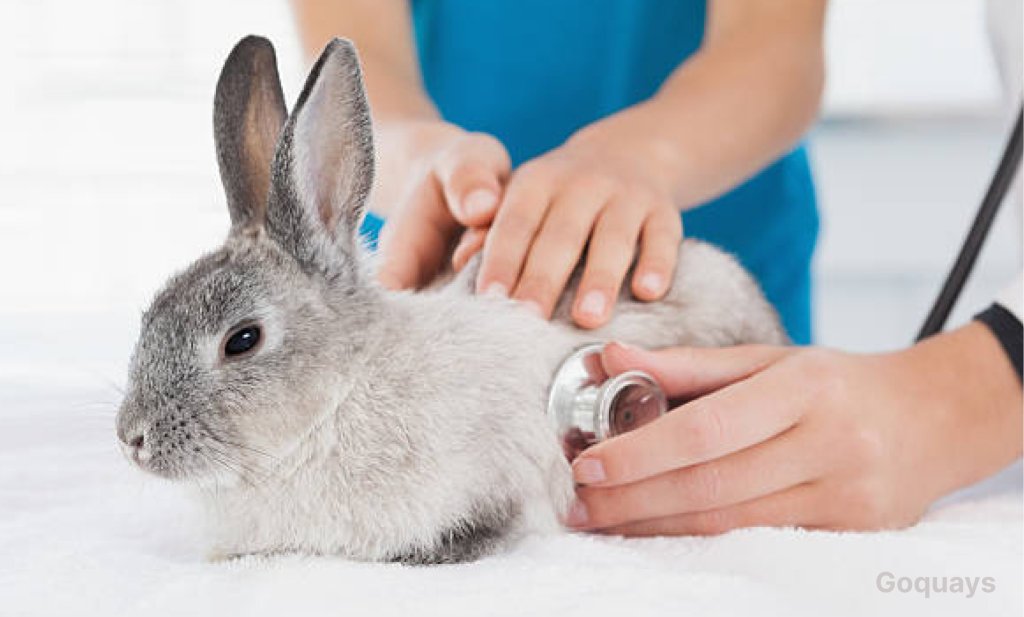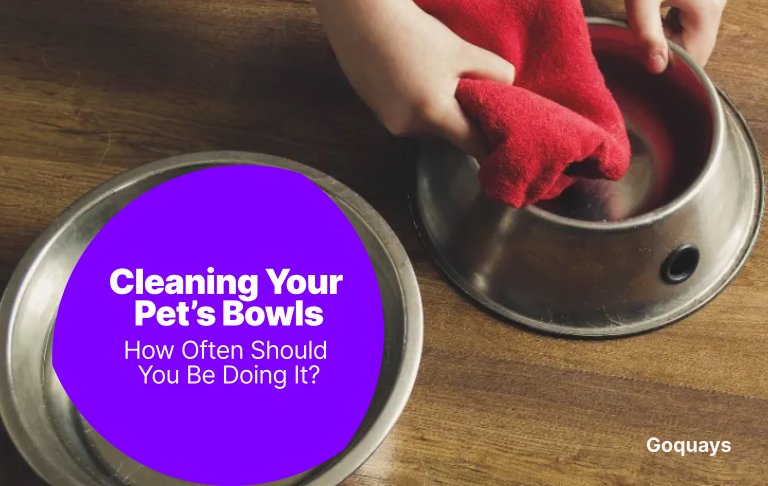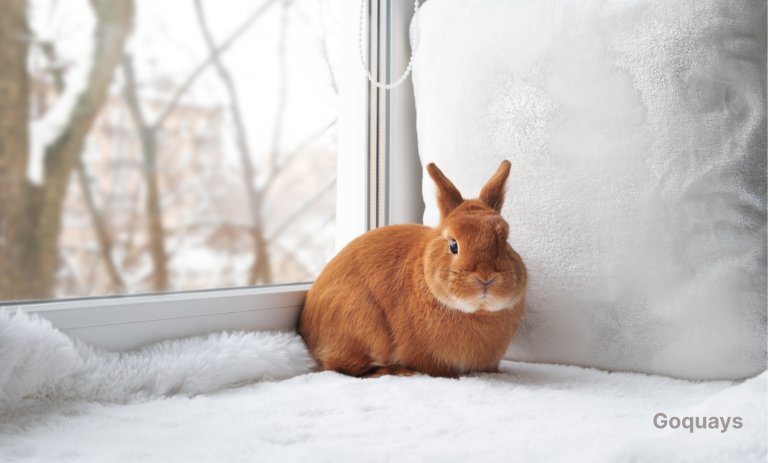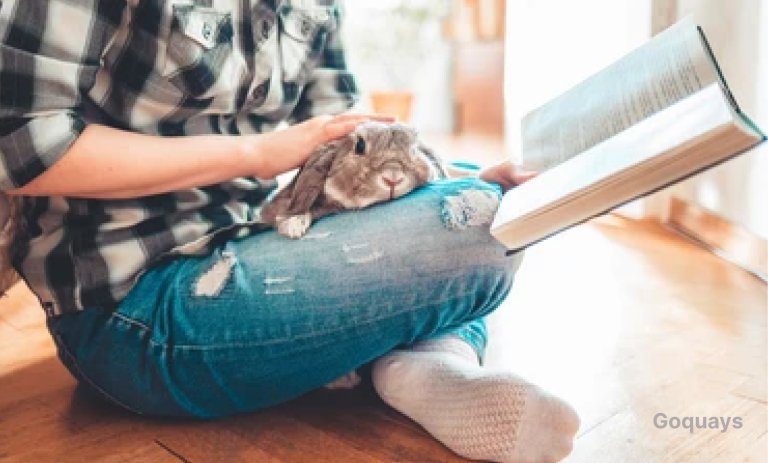In this article we would be talking about common rabbit health issues and how rabbit insurance can help. Rabbits are wonderful, smart and loving pets, but they need adequate care to remain healthy. Rabbits, like all animals, are prone to a number of diseases, many of which can worsen if left untreated. Owners of rabbits must understand common health issues and how to prevent them.
If your bunny suddenly becomes ill, pet insurance can offer financial relief, guaranteeing that your pet receives the best care available without having to worry about mounting vet bills. We’ll go over some of the most common health problems affecting rabbits in this article, along with prevention advice and how pet insurance can assist pay for necessary treatment.
Unlike common house animals like cats and dogs, rabbits usually conceal symptoms of disease until they worsen. Because of this, owners must take proactive measures to ensure the health and welfare of their rabbits.
Numerous illnesses that can quickly worsen if treatment is not received affect rabbits. Rabbit veterinary care can be costly, particularly when dealing with chronic ailments, surgery, or emergency treatments. This is where rabbit pet insurance becomes essential, helping to pay for expensive veterinary care and guaranteeing that your pet receives the best care possible when they need it most
Common Health Problems in Rabbits
Rabbits make adorable and loving pets, however, they are very fragile and need extra care to stay healthy. It is critical that as a rabbit owner, you are able to detect possible health problems early and start a treatment regimen or better still, prevent them. Some common health conditions that affect rabbits include:
Overgrown Teeth
Throughout their lifetimes, rabbits’ teeth grow continuously. If they don’t wear down properly, they may become enlarged, which can cause pain, infections, and trouble eating. This problem can be worsened by a poor diet deficient in fibre foods such as hay.
Overgrown teeth are among the most prevalent dental issues in rabbits. This is due to the fact that rabbits’ teeth never stop growing, because they have an open-rooted structure, just like those of other small pets such as guinea pigs and hamsters. Fortunately, maintaining your bunnies’ teeth at a convenient and uniform length is fairly simple. All you need to do is give them an endless supply of feeding hay, and the majority of them will be able to wear their teeth down on their own.
In addition to making it more difficult for your rabbit to eat or drink (which, if untreated, might be fatal), enlarged teeth can also result in the development of sharp spurs that sever the gums and sides of your rabbit’s tongue. Regardless of whether they are receiving the correct nutrition or not, a rabbit’s teeth can occasionally misalign in their mouth (malocclusion), which prevents them from wearing down normally. In these situations, routine dental care is required, and if the condition does not improve, an extraction of the tooth may be necessary.
It is important that you check your rabbit’s teeth regularly to identify problems before they become too difficult to manage.
Symptoms of Dental Disease
- Overgrown teeth
- Drooling
- Loss of appetite
- Weight loss
- Swelling around the mouth and jaw
- Difficulty in chewing food
- Tooth grinding
- Slow movement/general sluggishness
How to Prevent and Treat Dental Disease
- Provide enough fresh hay to help wear down the teeth
- Offer chew toys and vegetables rich in fibre
- Regularly inspect your rabbit’s teeth and contact your vet if you notice anything usual.
Gastrointestinal Stasis
Gut stasis also known as ileus is very common among rabbits. While it is not actually a disease, it is an indicator that points to illness, pain or stress. It is characterized by a slow movement of the digestive system, causing reduced bowel movement and partial or complete loss of appetite. Stress, dehydration, a lack of fibre, or pain from another condition can all cause this. The illness has the potential to be lethal if left untreated.
Symptoms of Gut Stasis
When a rabbit is suffering from gut stasis, they usually hide from the owner when offered food or treats. Other symptoms include:
- Loss of appetite
- Bloated or hard stomach
- Lethargy and reluctance to move
Prevention and Treatment
To prevent gut stasis, ensure your rabbit eats a diet high in fibre, give lots of water to keep your bunny hydrated, regular exercise is important to keep the digestive tract moving. Many rabbits suffer from gut stasis repeatedly during their lifetime. To treat this condition, provide nutritional support, pain management, and other drugs to manage the disease.
Respiratory Infections (Snuffles)
Snuffles is an upper respiratory tract infection that can become dangerous and progress to pneumonia if left untreated and can lead to death. The bacteria bordetella and pasteurella are the main causes of this disease. Pasteurella is naturally present in your rabbit’s nose and throat, however, it usually causes issues when your bunny is ill, anxious, or living in an unsuitable environment.
Ensure your rabbit is in a clean, well-ventilated environment with ample room for exercise, make sure they are fed with foods containing the right nutrients, and reduce stress levels by pairing them with same-sex or neutered bunny companions which is one of the best ways to prevent snuffles.
The bacterium can be spread between rabbits directly as well as indirectly via items, persons, clothing, etc. In order to prevent the spread of illness, you must keep your sick rabbits apart from other bunnies, keep everything they own clean, including their hands. Wait until the sick rabbits have fully recovered before reintroducing your rabbits.
Symptoms of Snuffles
These include:
- Wheezing of difficulty in breathing
- Teary Eyes
- Nasal discharge
- Weight loss
- Loss of appetite
- Low energy
- Being abnormally quiet
Prevention and Treatment
- Avoid exposing your rabbit to cold drafts and moist environments
- Keep their living area clean and properly ventilated.
- Avoid stress
If you notice any of these symptoms, seek vet care to begin treatment with antibiotics.
Flystrike (Myiasis)
Flystrike, often known as “myiasis,” is one of the most dreadful diseases that rabbits can contract. When flies deposit their eggs in your rabbits’ fur, they develop into maggots, which burrow beneath the skin and consume flesh, causing this potentially fatal illness. If you suspect flystrike in your rabbits, call your veterinarian immediately as maggots can do a lot of harm in one day.
Warm weather, a mucky bottom (from diarrhoea, dental problems, arthritis, obesity, and unclean enclosures), and fresh wounds are some of the causes of flystrike because flies like to lay their eggs around them. Keeping your bunnies’ hutch as clean as possible is the best defence against this illness.
Symptoms of Flystrike
- Restlessness or unusual behavior
- Maggots under the skin or in the fur
- Loss of appetite
- Lethargy
- A foul smell
- Open wounds that have maggots or fly eggs in them.
Prevention and Treatment
- Check your rabbit daily especially in warm weather.
- Trim long furs and ensure their bottom stays clean
- Keep their living area clean and dry
Avoid using general insect repellants on your rabbits because many of them are not safe and can have life-threatening consequences. Use only vet-approved insect repellent spray.
Ear Mite and Parasites
Sadly, fleas, mites, and lice can still infect rabbits and other small animals. Ear mites, fur mites, fleas, and lice are the primary ones to be mindful of. In addition to making your pet feel uncomfortable and itchy, these conditions can cause painful sores, fur loss, and other problems if they are not addressed. Any new rabbits you intend to bring into your home should always be examined by a vet to ensure they won’t infect your current pets with parasites.
If you have concerns about the fur or skin of your rabbits, consult your veterinarian; they can recommend a flea or mite treatment that is appropriate for rabbits.
Symptoms
- Excessive itching and head shaking
- Loss of fur
- Crusty deposits in the ears
- Dry, red, and sore skin
- Visible mites or flea dirt in the fur
- Black dots on the skin and fur
- Insects crawling in the fur
Prevention and Treatment
- Regularly inspect your rabbit’s ears and fur
- Keep bedding and environment clean and parasite-free.
Flea treatments meant for other animals, such dogs or cats, should never be used on rabbits since they might be toxic. Also, by keeping your bunnies’ hutch tidy, giving them frequent grooming, and giving them dust-extracted and packaged hay and straw.
Rabbits Viral Haemorrhagic Disease (RHD) and Myxomatosis
Rabbits need to be vaccinated on a regular basis to help maintain their health and avoid sickness, just like dogs and cats do. Rabbit Viral Haemorrhagic Disease (RHD) and Myxomatosis are two of the most common ones that rabbits can have. Unfortunately, both are usually lethal and awful for the afflicted rabbits.
Both illnesses are brought on by viruses; myxomatosis affects a rabbit’s eyes, skin, lungs, liver, and genitals, while RHD damages the rabbit’s internal organs and results in internal bleeding. The greatest defence against these unpleasant diseases is to vaccinate all of your rabbits between the ages of five and seven weeks, and then annually after that.
Symptoms of RHD
- Bleeding around the mouth, nose, and bottoms
- Loss of appetite
- High temperature
- Low vitality
RHD can also lead to sudden death as the disease progresses very quickly even before you become aware of the symptoms.
Symptoms of Myxomatosis
- Swelling around the ears, face and eyes
- Teary eyes
- Sores and skin lumps on the body and face
- Fever/High temperature
- Breathing problems
- Low energy
Prevention and Treatment
Measures to protect your rabbits from these diseases include keeping enclosures clean, covering outdoor rabbits’ living areas with mosquito netting if needed, and discussing with your veterinarian the proper flea treatments. Insect bites can spread diseases from wild rabbits to pets. In order to prevent the direct spread of diseases or parasites, it’s also a good idea to rabbit-proof your garden to keep wild rabbits out.
Additionally, you should vaccinate any additional rabbits you bring into your house and separate them from your current rabbits for a minimum of 3 weeks.
Obesity and Joint Problems
Rabbits who are overweight run the risk of developing heart disease, arthritis, and mobility problems. Additionally, being overweight might make it harder to groom, which raises the risk of illnesses and flystrike. This can affect the overall quality of life.
Symptoms include:
- Joint pain-related appetite loss
- Difficulty moving or hopping
- Difficulty grooming.
Prevention and treatment
- Providing a high-fiber diet with regulated pellet portions
- Limiting rewards and high-sugar meals like fruits and carrots
- Promoting frequent exercise, playtime, and room to wander.
Why Early Detection is Important
Rabbits tend to hide signs of illness, and as a result, pet owners need to be proactive in keeping an eye on their pet’s behaviour, food habits, and physical condition. Regular veterinary examinations can identify issues early and stop them from getting worse or endangering the life of your pet.
Owners can take preventative action to maintain the health and happiness of their beloved pet by being aware of these common health issues in rabbits. Having pet insurance can assist pay for unforeseen medical expenses in the event of an illness, ensuring your rabbit receives the finest treatment possible without having to worry about money.
How Pet Insurance Can Help with Rabbit Health Problems
Among the numerous duties that come with owning a rabbit is making sure they get timely treatment if the need arises. Regretfully, rabbits are susceptible to a number of health problems, some of which call for expensive medical care. When unanticipated health problems occur, pet insurance can be a lifesaver in such situations, offering both financial help and peace of mind. Let’s examine why pet insurance is a wise investment for rabbit owners and how it can help manage health issues with their pets. But first, what does pet insurance typically cover:
- Emergency treatments
- Surgery and hospital stays
- Diagnostic tests
- Prescription medications
- Specialist treatments
What’s not covered
- Routine checks and vaccinations
- Pre-existing conditions
- Elective procedures such as teeth trimming and neutering.
Let’s now dive into how pet insurance can help with rabbit health problems:
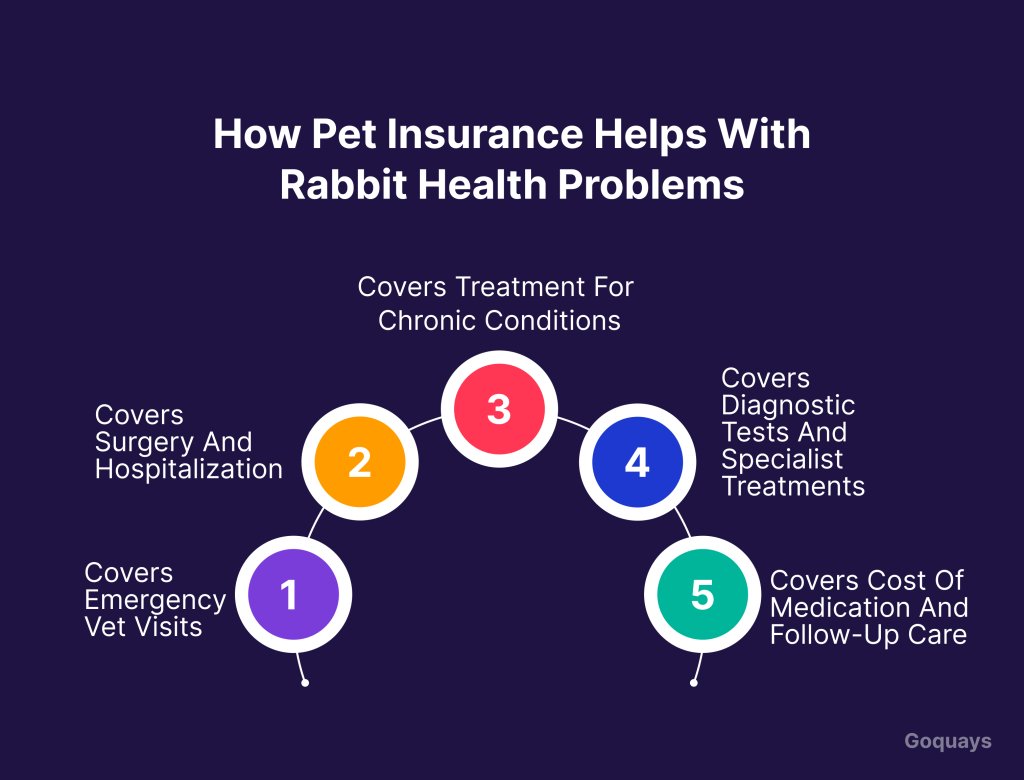
Covers Emergency Vet Visits
Rabbits are prey animals, so they usually will not show signs of illness until it becomes dire. This can result in unexpected medical issues that must be treated immediately. Some of the common health emergencies that pet insurance can cover include, gut stasis, injuries for accidents or falls, flystrike and severe respiratory infections. Emergency vet visits can cost a lot of money, but with pet insurance, the financial burden can be reduced.
Covers Surgery and Hospitalization
Surgery is sometimes necessary to treat certain health problems in rabbits, and it can be costly. Since rabbits are fragile creatures, a specialist veterinarian with knowledge of small animals is needed for any surgical procedure. Some surgical procedures that may be covered include; dental surgery, tumour removal, and abscess drainage. These surgeries can cost between £200 and £1,500 if you don’t have insurance, however pet insurance can help lower these costs considerably.
Covers Treatment for Chronic Conditions
Rabbits are susceptible to chronic ailments that call for ongoing care, much like cats and dogs. Frequent veterinary visits and continuous medical expenses might result from conditions including arthritis, kidney illness, and heart issues. Insurance policies can assist reduce long-term medical expenses and guarantee your rabbit gets the best treatment available.
Covers Diagnostic Tests and Specialist Treatments
To choose the optimal course of treatment, diagnostic testing is necessary for many rabbit ailments. The cost of these tests can mount up quickly, particularly if several vet visits are required. Due to their small size and fragility, rabbits frequently need specialised care, which can be expensive, to diagnose their illness. Pet insurance guarantees that you won’t have to worry about money for these essential tests.
Covers Cost of Medication and Follow-up Care
Post-treatment care and continuous medication are necessary for many rabbit ailments. These expenses can mount up over time, whether they be for eye drops for conjunctivitis, antibiotics for infections, or painkillers for arthritis. You won’t have to worry about covering the cost of follow-up appointments and pricey prescription drugs out of pocket if you have pet insurance.
Rabbit insurance is definitely a smart investment for pet owners as it can assist with the expense of emergency care, surgery, diagnostic testing, and prescription drugs. Financial protection guarantees that rabbits receive early and proper care because they are susceptible to a variety of illnesses and unexpected medical problems.
Consider getting a comprehensive pet insurance plan right now if you want to provide your rabbit with the best care possible without having to worry about expensive veterinary fees. The happiness and well-being of your pet are worth it!
How to Prevent Health Issues in Rabbits
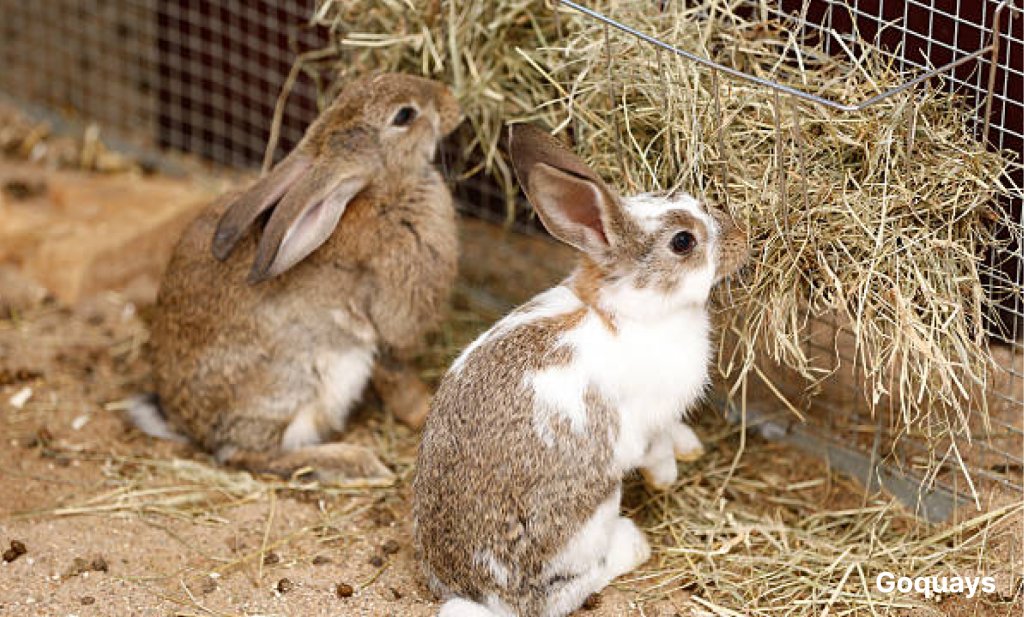
Prevention is better than cure! To prevent and minimize health problems in rabbits requires combining a healthy diet, regular exercise, proper hygiene, and veterinarian treatment. Given their fragility and susceptibility to certain diseases, preventive care is essential to a rabbit’s long, happy, and healthy existence. The following are crucial actions you may take to shield rabbits from frequent health problems.
Provide a Healthy Diet: To promote dental and digestive health, give your pet a balanced diet consisting of 85% hay, 10% fresh vegetables, and 5% rabbit pellets. You can also give occasional treats like small portions of fruits like bananas and strawberries. Avoid sugary treats, also note that garlic, onions, and chocolates can be toxic to rabbits.
Routine Veterinary Checks: Take your rabbits for routine check-ups to identify possible problems early, schedule periodic examinations with your vet.
Practice Good Hygiene: To avoid parasites and bacterial infections, keep your rabbit’s cage dry and clean. Also ensure to keep your rabbit clean, examine their fur and bottoms for possible parasites.
Grooming: rabbits are naturally clean animals, but they still require regular grooming to stay healthy. Long haired rabbits like Angoras need daily brushing, while bushing once a week will suffice for other breeds. Regularly inspect their ears and eyes for wax build up or discharge. Monitor their teeth for signs of overgrowth as their teeth never stop growing.
Note: Never bathe a rabbit as it can cause stress, hypothermia, and respiratory infections. Instead, spot-clean them with a damp cloth if necessary.
Encourage Exercise: To keep your rabbit at a healthy weight, make sure it has enough room and time to hop, run, and play. Create an artificial digging box filled with shredded paper or hay to satisfy their natural burrowing instincts. Avoid keeping rabbits confined in small spaces for long periods, as this can lead to muscle atrophy and behavioral issues.
Provide Companionship and social interaction: rabbits are highly social animals that thrive on companionship. In the wild, they live in groups, so keeping them alone can lead to loneliness and depression. Consider getting a bonded pair instead of one. Talk to them and hand-feed treats to them.
Keep an Eye Out for early Signs of Illness: Examine your rabbit’s teeth, fur, eyes, and droppings on a regular basis to identify any early symptoms of illness or pain.
Consistent care, a healthy diet, a clean environment, and regular veterinary checkups are necessary to prevent health problems in rabbits. You can greatly reduce your rabbit’s risk of developing common ailments and guarantee that it lives a long, happy life by following these measures. Pet insurance can help with unforeseen veterinary expenses, giving you peace of mind that your rabbit will always get the appropriate treatment when it’s needed.
Conclusion
Despite their small size, rabbits can have complicated and expensive medical needs. Purchasing a reliable pet insurance plan guarantees that you’re ready for any health issues your bunny may encounter, regardless of how old they are. You can provide your rabbit with a long, happy, and healthy life without having to worry about unexpected veterinary expenditures by combining proactive care with adequate insurance coverage.
Quays offers you a wide range of reliable and affordable pet insurance plans to choose from. Take action today! if you haven’t already. Visit our website to choose a policy that best fits your rabbit’s needs. Your bunny’s health and happiness are worth it!

